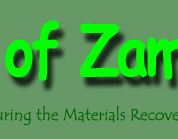



|
OVERVIEW
THE
LAW
THE
PROCESS
THE
PRODUCT
GLOSSARY
MENU
GLOSSARY
SOLID WASTE - refers to all discarded household waste, non-hazardous institutional and industrial waste, street sweepings, construction debris, agricultural waste, and other non-hazardous/non-toxic solid waste.
SOLID WASTE MANAGEMENT – refers to all activities pertaining to the control, transfer and transport, processing and disposal of solid wastes in accordance with the best principles of public health, economics, engineering, conservation, aesthetic and other environmental considerations. Its scope includes all attendant administrative, financial, legal, planning and engineering functions.
REDUCE - refers to the strategies in reducing the volume of solid waste generated at source.
REUSE – refers to the recovery of materials intended to be used again either for the same or different purpose without altering their physical and chemical characteristics. Examples: reusing bottles, plastic and other containers; using back of “used” paper; using old newspapers as wrapping/packing materials, etc.
RECYCLING
- refers to the process by which solid waste materials are transformed
into new products or used as raw materials for the production of other
goods or services.
COMPOSTING - refers to the controlled decomposition
of organic matter by micro-organisms, mainly bacteria and fungi, into
a humus-like product.
ENZYMES – a protein produced by cells, with substances to initiate or accelerate chemical reactions in plants or animal matter, acting like an organic catalyst.
FERTILIZER MATERIALS - all compostables or biodegradable such as garden wastes, (leaves, twigs, weeds), animal waste (manure, carcasses), human waste (feces, urine, blood, all excreta, soiled wipes, pads, diapers (removed plastic portions) etc., are made into compost for organic gardening.
MATERIALS
RECOVERY FACILITY (MRF) – includes a solid waste transfer
station or sorting station, drop-off center, a composting facility and
a recycling facility.





